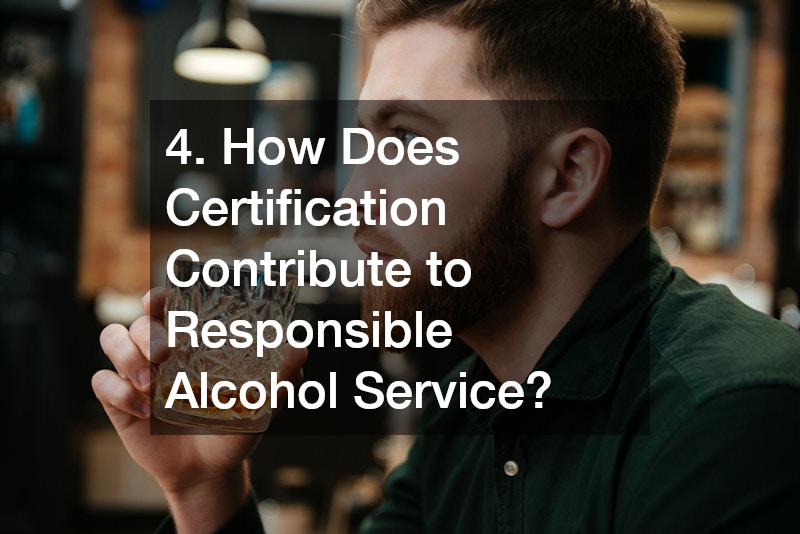Alcohol server certification plays an indispensable role in the hospitality industry, acting as a cornerstone for responsible alcohol service. This certification’s relevance extends beyond mere compliance, serving both employers and staff by promoting safe practices and enhanced service standards.
1. What is Alcohol Server Certification?
1.1 Definition and Overview
Alcohol server certification is a formal process that equips individuals with the essential knowledge and skills required to responsibly serve alcohol. This includes training on legal requirements, age verification, and techniques for handling difficult situations.
The certification programs generally cover several key components, such as understanding the effects of alcohol and identifying signs of intoxication. Additionally, they provide guidelines for refusing service when necessary.
Most jurisdictions require specific educational criteria to be met before certification can be awarded, ensuring that servers are well-prepared to meet industry standards. This standardization helps maintain uniformity and accountability across the hospitality sector.
1.2 Importance in the Hospitality Industry
Certification is critical in emphasizing the importance of legal compliance within the hospitality industry. It acts as a protective measure, safeguarding businesses against potential legal pitfalls and liabilities.
The role of alcohol server certification is not solely about compliance; it also underscores the industry’s commitment to safety and public welfare. By adhering to these standards, establishments reduce the likelihood of alcohol-related incidents.
Moreover, the certification ensures that servers are aware of local and state laws, facilitating a more informed and cautious approach to alcohol service. This proactive stance helps create a safer environment for both patrons and staff.
2. How Does Certification Benefit Employers?
2.1 Reducing Liability and Risks
Employers benefit significantly from certification as it helps mitigate legal and financial risks associated with alcohol service. Certified employees are better equipped to manage situations responsibly, which can prevent costly lawsuits and fines.
Additionally, having a workforce that is properly trained and certified minimizes the chances of over-serving, thereby reducing the potential for alcohol-related incidents. This proactive risk management can lead to reduced liability insurance premiums for the business.
By employing certified servers, businesses demonstrate a commitment to safety and responsibility, which can protect them in the event of any legal issues. This level of preparedness is invaluable in shielding a company from financial burdens linked to non-compliance.
2.2 Enhancing Reputation and Customer Trust
The presence of certified servers in an establishment can significantly enhance its reputation and customer trust. Patrons are more likely to frequent a business where they feel assured of responsible and knowledgeable service.
Certification acts as a hallmark of quality, signaling a higher standard of service that sets a business apart from its competitors. This can lead to increased customer satisfaction and loyalty, translating to repeat business and positive word-of-mouth referrals.
Moreover, patrons tend to perceive establishments with certified staff as safer and more reliable, fostering a trust that is crucial for sustained success in the hospitality industry. This trust can become a competitive advantage in an increasingly crowded market.
3. What are the Advantages for Alcohol Servers?
3.1 Skill Development and Knowledge Acquisition
Alcohol server certification offers substantial benefits to individuals by enhancing their skills and knowledge base. The training provided by these programs helps servers understand various aspects of alcohol service, from safety practices to legal obligations.
Individuals who undergo certification are well-prepared to handle the challenges of their roles, leading to increased confidence and proficiency. This skillset contributes to a more dynamic and capable workforce in the hospitality industry.
Effective training through certification can also translate into better customer interactions, as servers are equipped with the expertise to handle any situation professionally. This not only improves the service experience but also enriches the server’s professional capability.
3.2 Career Advancement Opportunities
Certification can be a stepping stone for career advancement in the competitive hospitality industry. It often acts as a prerequisite for promotion, facilitating upward mobility for those committed to developing their careers.
Certified servers have a distinct advantage in the job market, as employers prioritize individuals who demonstrate a commitment to high service standards. This recognition can open doors to better positions and increased remuneration.
Career advancement also comes with additional responsibilities, allowing servers to broaden their professional horizons and enhance their skill set further. This progression is not only rewarding financially but also personally fulfilling.
4. How Does Certification Contribute to Responsible Alcohol Service?
4.1 Training in Responsibility and Awareness
Alcohol server certification programs place a strong emphasis on instilling a sense of responsibility and awareness among servers. This training ensures that staff are not only knowledgeable but also conscientious in their approach to alcohol service.
Through these programs, servers are educated on the social and health impacts of alcohol, fostering a responsible attitude towards serving it. This awareness is crucial for creating a safe and enjoyable environment for patrons.
Furthermore, certification develops a culture of responsibility within a team, where each member is accountable for upholding the standards of safe service. This collective responsibility enhances the overall atmosphere of an establishment.
4.2 Compliance with Laws and Regulations
Certification plays a pivotal role in educating servers about the various laws and regulations governing alcohol service. This knowledge ensures that servers remain compliant, avoiding potential legal issues for both themselves and their employers.
Compliance extends beyond understanding the legal drinking age; it includes being aware of state-specific laws that might impact service practices. This comprehensive understanding of regulations helps minimize the risk of infractions.
Certified servers act as valuable assets to their employers, ensuring that the establishment is consistently meeting its legal obligations. This level of compliance is essential for maintaining a business’s operational integrity and avoiding costly penalties.


